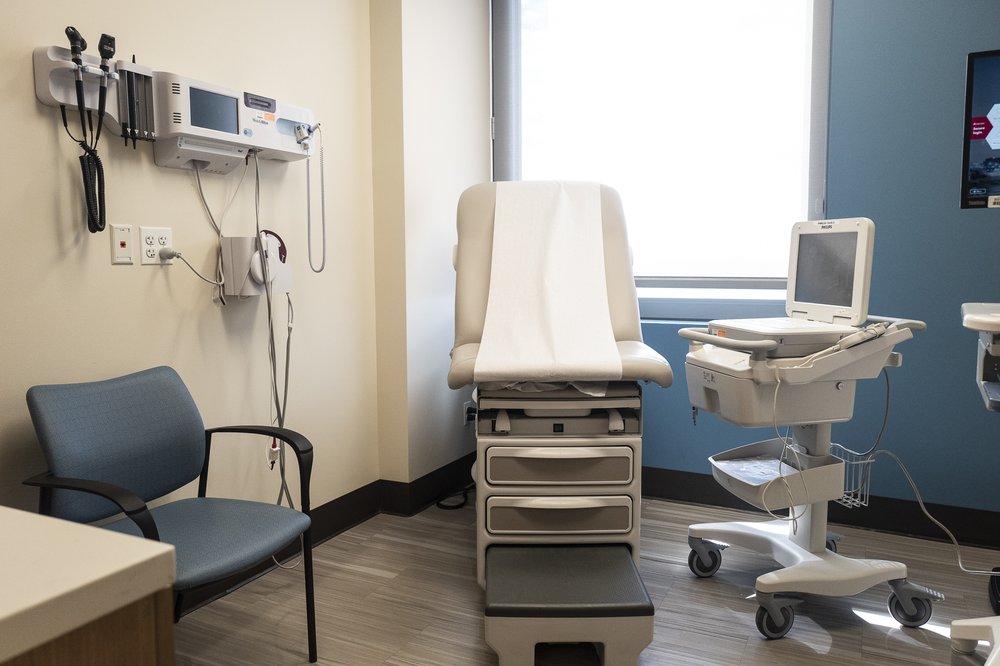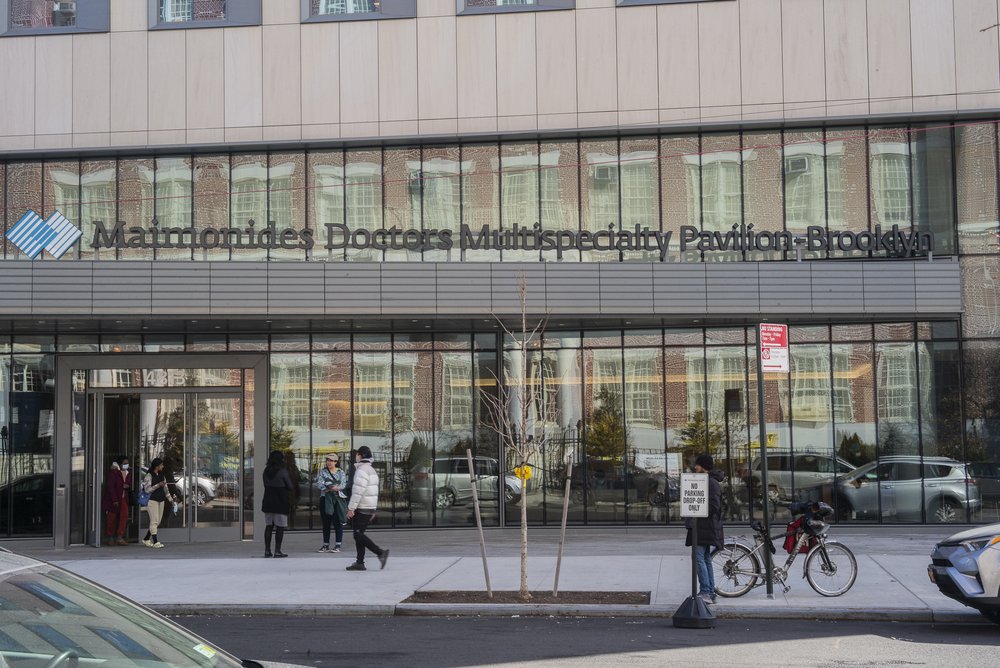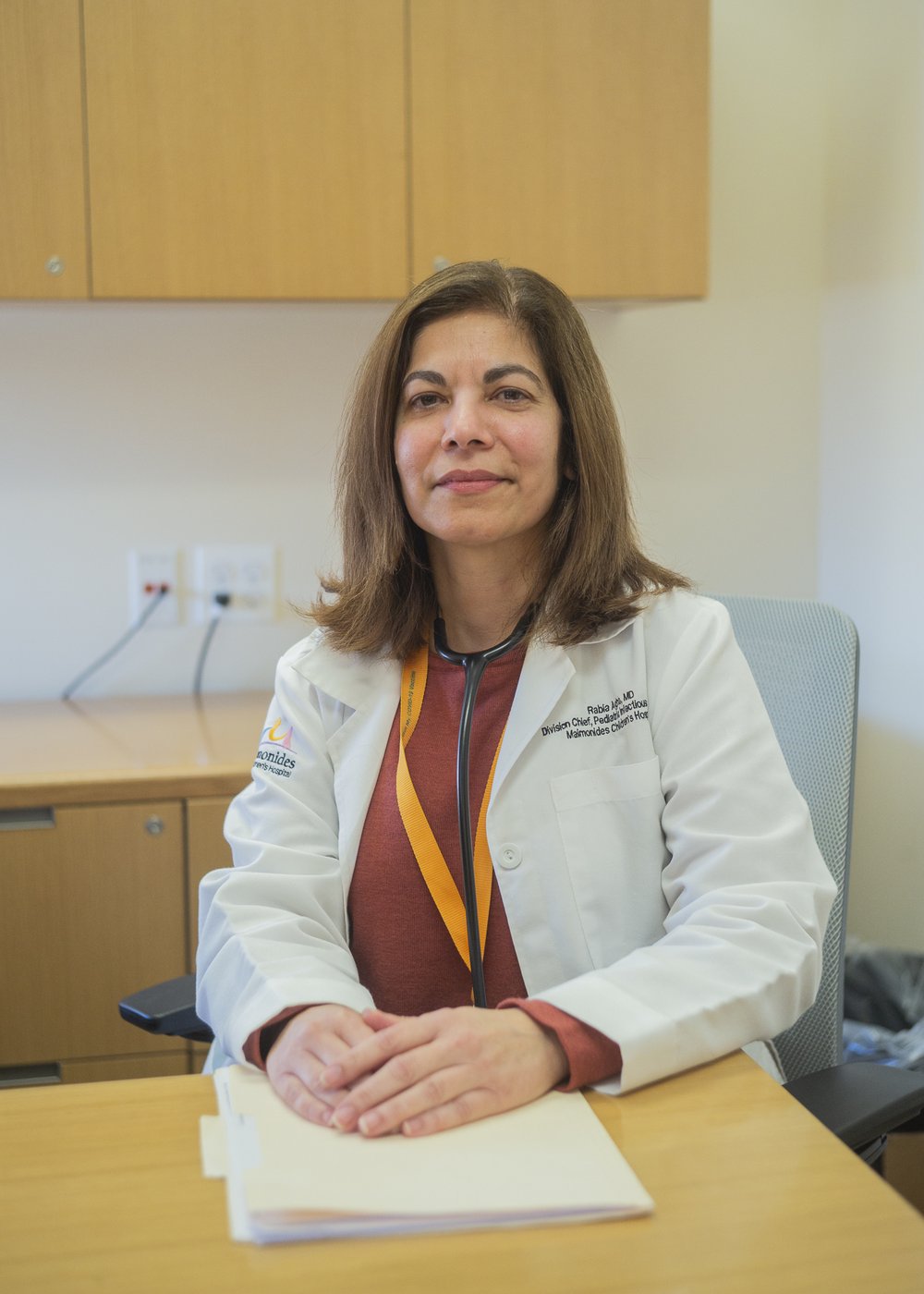Got long COVID? Here’s what NYC’s private health care can offer.
Feb. 23, 2023, 6:01 a.m.
Private health clinics often streamline the process of connecting patients with specialty doctors. But despite the efficiency and range of options, some NYC patients still describe difficulties with obtaining care.

- heading
- Factbox
- image
- image
- None
- caption
- body
This story is the third in a series on long COVID treatment options in New York City. Read the first piece on public facilities run by NYC Health + Hospitals and the second on university care.
At long COVID clinics within New York City’s private health systems, medical teams are working to solve this chronic condition. But in the absence of specific treatments that address long COVID's underlying cause, doctors often focus on treating individual symptoms — a strategy that works better for some patients than others.
Private health clinics can often be more efficient than their public counterparts, streamlining the process of quickly connecting patients with specialty doctors who can treat the various maladies connected to long COVID, which can range from brain fog to heart disease. For example, Maimonides Health in Brooklyn runs one of few clinics that cares for children dealing with long COVID, while Jamaica Hospital in Queens offers holistic and alternative medicine experts along with conventional doctors.
But despite the efficiency and range of options available with private care, some patients who spoke to Gothamist described difficulties with finding the right specialists and said they sometimes received medical advice that was unhelpful for them. Patients at city-run public clinics and academic medical centers have encountered similar difficulties, as learning how to treat long COVID is a universal challenge across health systems.
Long COVID patients who have chronic fatigue may be particularly likely to get unhelpful recommendations, as doctors may simply tell them to rest and return in a few months. These patients might also be pointed to exercise-focused rehabilitation programs, even though exercise can worsen symptoms according to the World Health Organization. Limited medical education on chronic fatigue and debates over ongoing research may contribute to the discrepancy.
“I don't want other patients to go through what I did as far as getting their hopes up, and thinking you’re going to this expert team that’s going to do everything in their power to heal you,” when in fact, options may be limited, said Melissa Mansfield, a Brooklyn-based long COVID patient who has visited the Maimonides clinic as well as a center at Mount Sinai.
Multiple disciplines for a complex disease
Almost three years since the first long COVID patients began sharing their stories, “there is no single medication, no single therapy that makes all the symptoms better,” Dr. Thomas Gut, an internal medicine doctor with the Post-COVID Recovery Center at Staten Island University Hospital. It’s part of Northwell Health, New York state's largest health care provider.
There is no single medication, no single therapy that makes all the symptoms better.
Dr. Thomas Gut, Post-COVID Recovery Center at Staten Island University Hospital
“A visit at our clinic means that you'll be seen by myself in person, and on the same day, you'll be seen by a neuropsychologist and also a rehab specialist,” Gut said.
This multidisciplinary approach is a theme across New York City, which reportedly has more long COVID clinics than anywhere else in the country. At Maimonides, pediatric and adult patients are evaluated by an infectious disease expert, then they receive referrals to specialists depending on their symptoms. For example, a patient with heart issues may see a cardiologist, while someone with gastrointestinal symptoms may see a GI expert.

To streamline this referral process and build up expertise across the health system, Maimonides has dedicated specialists in each department who are “overseeing long COVID patients,” said Dr. Barbara Alvarez, an infectious disease doctor at the adult clinic.
In addition, long COVID patients at Maimonides may receive preventative care, such as cancer screenings. Many patients don’t have a primary care doctor, so the clinic tries “to establish that care,” Alvarez said. The city’s public long COVID clinics run by New York City Health + Hospitals similarly help long-haulers access preventative care.
The pediatric clinic at Maimonides sees hundreds of patients from the city as well as upstate New York, Long Island and other regions, said Dr. Rabia Agha, the director of pediatric infectious diseases at Maimonides. Other city health systems with adult long COVID clinics typically refer children here, she said.
Research on long COVID in children has been limited, in part due to smaller numbers of patients. But children usually have similar symptoms to adults, Agha said. She’s been surprised to find that the condition can affect kids who were “perfectly fine before the virus hit them” along with children who had other medical conditions prior to COVID-19.

Children are commonly referred to psychologists and therapists, though finding the right match for a particular patient can take time, Agha said, as therapists and other mental health care workers have seen increased demand during the pandemic.
The challenge of treating what’s vague
Coordinating between different specialists can be a challenge for patients who have more complex cases of long COVID, whether they’re receiving care at research-focused clinics or private health systems.
Alvarez noted that patients sometimes already have other doctors when they come to see her at Maimonides. Sharing health records and discussing care plans across health systems is a common struggle for long COVID doctors, as providers use different platforms for recordkeeping that can’t easily be connected.
Her clinic has recently seen more patients with dysautonomia, a group of conditions that involve the autonomic nervous system failing to function correctly. Long COVID patients often meet the diagnostic criteria for dysautonomia, which can lead doctors to recommend common symptom management tips such as wearing compression socks or adding salt to one’s diet.
At Staten Island University Hospital, Gut and his colleagues have developed long COVID strategies to address brain fog, insomnia and other neurological symptoms. Some patients can “use simple things around the house that have strong odors” to retrain their sense of smell after a COVID-19 case, Gut said.
Doctors might also recommend physical therapy or other forms of exercise. While this can help some patients, such as those whose physical stature diminished during long hospital stays, experts say it may be dangerous for patients who have post-exertional malaise, a dramatic worsening of symptoms following physical or mental exercise.
Mansfield recalled receiving a recommendation to “gently exercise” during her first appointment at the Maimonides clinic, which she now considers the wrong advice for her. “The more I push, the more I set back my body,” she said. Instead, she’s learned to manage her symptoms through rest and pacing.
Doctors at Maimonides clarified that their recommendations are specific to individual patients’ needs and capacities for exercise. “They set their own pace, we would never push them,” Agha said of her pediatric patients, noting that referrals to physical therapy from her clinic are rare.
James Vitale, a Staten Island-based patient who has gone to the Staten Island University clinic, has similarly learned to be careful with exercise after receiving recommendations for it in multiple places. “I have chronic fatigue symptoms, and if I exercise, it’ll just make it 10 times worse,” he said.
Patients like Vitale can benefit from seeing an expert in myalgic encephalomyelitis/chronic fatigue syndrome, a condition characterized by fatigue after exercise. But there are relatively few of these experts, which can limit the care available to such patients, Alvarez said. It can also sometimes be difficult for doctors to identify when people meet the criteria for ME/CFS — since this disease, like Long COVID, is diagnosed based on symptoms — she explained.
As doctors continue to develop best practices in caring for people with long COVID, many patients would like to see more medical education around the condition, more support for the financial losses tied to the condition, and broader public awareness campaigns that may help address dismissals they have received from friends and family members.
“A lot of people don’t understand,” said Vitale, who is 24. “People need to know, [COVID-19] can actually make someone young like me really sick for a while.”
This story was updated with comments from Maimonides Health.